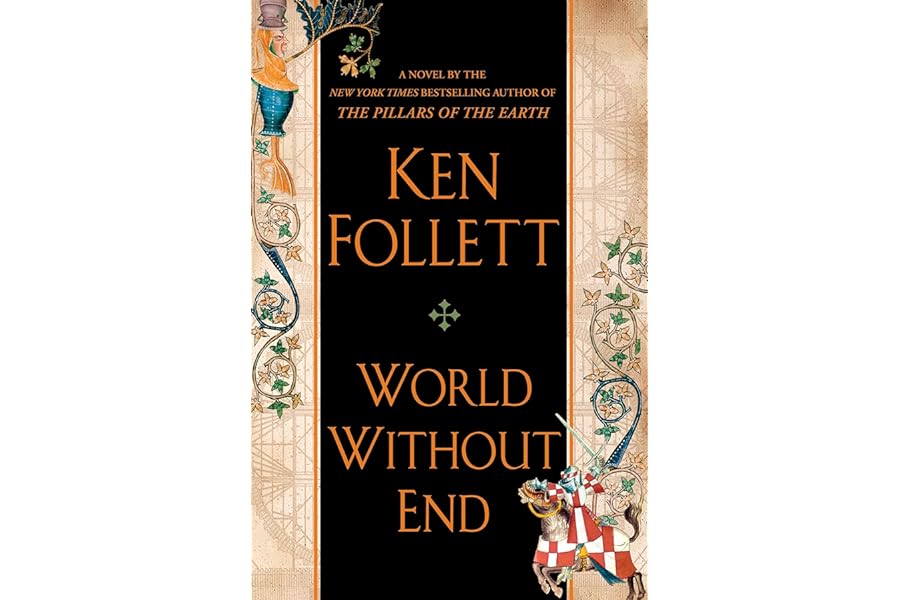One sentence summary:
In the historical fiction novel ‘World Without End (Kingsbridge)’ by Ken Follett, we follow the lives of various characters in the 14th century medieval town of Kingsbridge and their struggles for survival and power.
Book genre:
Historical fiction.
Main topic of the book:
The main topic of the book is the complex and turbulent world of medieval England, with its political and social conflicts, religious struggles, and the impact of the Black Death.
Key ideas:
- The fragility and resilience of human life and society in medieval times
- The interconnectedness of power, politics, religion and economics in shaping individual lives and community dynamics
- The struggle for power and influence in a world of constant change and uncertainty
- The impact of the Black Death and its aftermath on individuals and society
Main parts of the book and a short summary:
- Part One: The End of Prosperity (1327-1328) – We are introduced to the thriving town of Kingsbridge and its ambitious citizens. The construction of a magnificent bridge over the river is set in motion, but the town also faces challenges with the arrival of a new prior and his ambitious brother, Caris, who fights against the traditional patriarchy to follow her dream of becoming a doctor.
- Part Two: The Resignation (1337-1339) – Political tensions arise between England and France, leading to the Hundred Years’ War and the introduction of a new villain, Sir Ralph, who uses the war to his advantage. Meanwhile, Caris deals with her forbidden love for Merthin and the outbreak of the Black Death which ravages the town and its people.
- Part Three: The Game (1341-1345) – Kingsbridge struggles to recover from the effects of the plague, but new threats arise as the townspeople vie for power and status. Caris and Merthin work together to improve the town’s economy, but their efforts are challenged by conflicts within and outside Kingsbridge.
- Part Four: The Sins of the Fathers (1357-1359) – The next generation of Kingsbridge citizens faces their own struggles for survival and power as they navigate through the ever-changing political and social dynamics of the medieval world. The past comes back to haunt some characters, leading to unexpected consequences.
- Part Five: The Justicing (1361-1362) – As England is faced with a new king and the threat of the Hundred Years’ War looms once again, the citizens of Kingsbridge must come together to protect their town and preserve their way of life.
Key takeaways:
- The resilience of the human spirit in the face of adversity.
- The complex and intertwined nature of power, politics, religion and economics in shaping human lives.
- The devastating impact of the Black Death and how it changed the world forever.
- The constant struggle for power and survival in a world of change and uncertainty.
Author’s background and qualifications:
Ken Follett is a highly acclaimed British author, born in 1949. He has written numerous bestselling novels in various genres, including thrillers, historical fiction, and spy novels. Follett has won several awards for his work and is known for his meticulous research and attention to historical accuracy.
Target audience:
This book is suitable for readers who enjoy historical fiction and are interested in the complexities of medieval society.
Publisher and first publication date:
The book was published by Dutton, an imprint of Penguin Group, in 2007.

